 Petzlover
Petzlover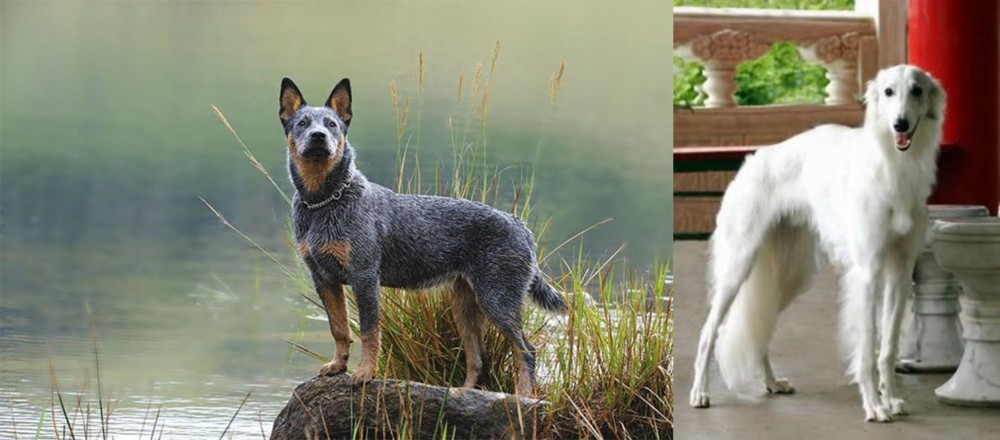 Blue Healer is originated from Australia but Silken Windhound is originated from United States. Blue Healer may grow 9 cm / 3 inches shorter than Silken Windhound. Both Blue Healer and Silken Windhound are having almost same weight. Blue Healer may live 3 years less than Silken Windhound. Blue Healer may have more litter size than Silken Windhound. Both Blue Healer and Silken Windhound requires Low Maintenance.
Blue Healer is originated from Australia but Silken Windhound is originated from United States. Blue Healer may grow 9 cm / 3 inches shorter than Silken Windhound. Both Blue Healer and Silken Windhound are having almost same weight. Blue Healer may live 3 years less than Silken Windhound. Blue Healer may have more litter size than Silken Windhound. Both Blue Healer and Silken Windhound requires Low Maintenance.
 It was in 1802 that George Hall arrived in New South Wales, establishing 2 cattle stations. He had a problem – getting his thousands of cattle to the Sydney markets. He began looking at the prospect of a droving dog and imported a number of dogs of which a blue mottled dog emerged.
It was in 1802 that George Hall arrived in New South Wales, establishing 2 cattle stations. He had a problem – getting his thousands of cattle to the Sydney markets. He began looking at the prospect of a droving dog and imported a number of dogs of which a blue mottled dog emerged.
The dogs were crossed with dingoes and by 1840 the Halls Heelers were used by the Halls. However with the death of one of the Halls, their cattle stations went to action and the dogs, the Halls Heelers became available.
The dogs attracted attention, and the term ‘Australian Cattle Dog’ was adopted. The name referred to those dogs coming from Thomas Hall's ‘Heelers’. There have been many arguments about the origin of the breed, but the red or blue offspring known as Hall's Heelers were proven cattle drovers, and with further breeding experiments which included the Australian Kelpie, dingoes and the Dalmation, by 1893, the tough, robust working breed known as the Blue Heeler or the Australian Cattle Dog came about.
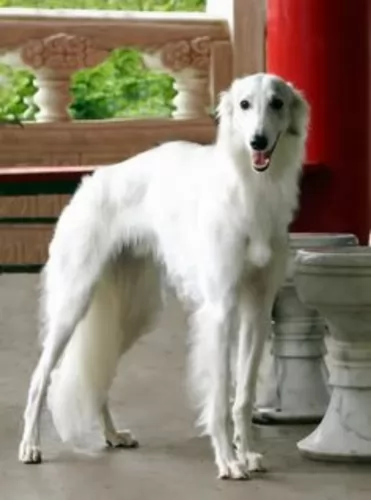 The Silken Windhound is a breed intentionally developed by Borzoi and Deerhound breeder, Francie Stull. Although the first litter of the Windhoud was not born until 1995, their development began in discussions ten years later. Bred as a cross between her beloved Deerhounds and Borzoi, the first Society for the breed formed in 1999 and they were recognized by the UKC in 2011.
The Silken Windhound is a breed intentionally developed by Borzoi and Deerhound breeder, Francie Stull. Although the first litter of the Windhoud was not born until 1995, their development began in discussions ten years later. Bred as a cross between her beloved Deerhounds and Borzoi, the first Society for the breed formed in 1999 and they were recognized by the UKC in 2011.
Ms. Stull wanted another breed for her kennel and decided on a smaller sighthound than her Borzoi. She wanted a long coat, a good temperament, good health, and possessing the same athletic abilities, grace and poise as the sighthounds that are larger. She developed the Silken Windhound based on this vision.
With this in mind, the kennel purchased the pick of a litter from the American and English Borzoi Champion bitch, Stillwater Virginia Reel. This puppy was eventually bred to Stillwater White Lightning and produced puppy that was a blue brindle. This dog, Stillwater Kristull Peacock, had the coat, personality and structure that Ms. Stull wanted for the new breed. She was bred to Deerhound Windsprite Autumnal Xenon to form the foundation for the Silken Windhound.
Over time champion Borzoi were bred with multi-generation Whippet based dogs and small Whippet from coursing and show lines. Finally, all of this work was rewarded with an incredible little sighthound to fit in the line of sighthounds between the giant and large breeds and the smaller whippet type breeds.
The Silken Windhound lives today in 24 different countries. They take their place in hound competitions all over the world in obedience, lure coursing, and racing. They are a Limited Stake Breed in the ASFA and competed with 40 other dogs in 2010. Then they were accepted by the NOFCA or National Open Filed Coursing Association, also in 2010. Finally, in 2011 they were fully accepted by the UKC.
The Silken Windhound is recognized in addition to the UKC, by the Dog Registry of America, the Rarities Inc., the American Canine Association, the Kennel Club of Slovenia, the American Pet Registry, Inc., the International Silken Windhound Society and the International, All-Breed Canine Association of America.
 Blue Heelers are medium-sized, sturdy, compact dogs who are somewhat longer than tall. The female Blue Heeler measures roughly 43–48cm at the withers, while the male measures about 46–51cm. If your Blue Heeler is in tip top condition, he’ll weigh about 15 to 22 kilograms. They are muscular with pointed, erect ears, dark eyes and long tails which are mostly hanging downwards. Their dense coats are blue- or red speckled and sometimes with tan markings.
Blue Heelers are medium-sized, sturdy, compact dogs who are somewhat longer than tall. The female Blue Heeler measures roughly 43–48cm at the withers, while the male measures about 46–51cm. If your Blue Heeler is in tip top condition, he’ll weigh about 15 to 22 kilograms. They are muscular with pointed, erect ears, dark eyes and long tails which are mostly hanging downwards. Their dense coats are blue- or red speckled and sometimes with tan markings.
The Blue Heeler is a ball of energy and he is clever too. You won’t find him sitting around for too long, and if there is sign of a walk or a ball game, he’s in! He is an independent dog, and although he makes a wonderful family pet, he tends to attach himself to that one special person in his life. He is a natural watchdog and protector of his human family.
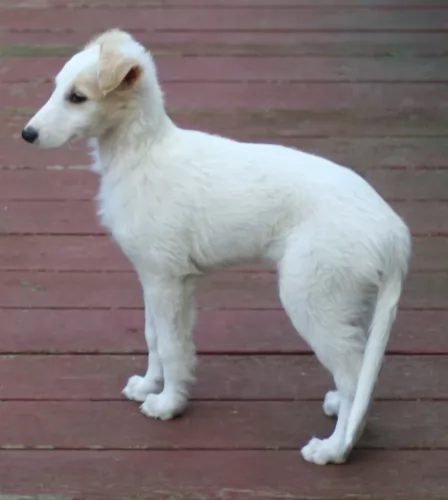 The Silken Windhound is a breed of beautiful, athletic medium sized dogs. They have the long coat, athletic build and classic lines of the sighthound/coursing dog. Just looking at them and you know they have strength, balance and grace in those medium sized bodies. Their running ability is exceptional. They perform well in the confirmation rings.
The Silken Windhound is a breed of beautiful, athletic medium sized dogs. They have the long coat, athletic build and classic lines of the sighthound/coursing dog. Just looking at them and you know they have strength, balance and grace in those medium sized bodies. Their running ability is exceptional. They perform well in the confirmation rings.
They are sine boned, balanced with smooth muscles – a sleek hardy looking dog. They have almond-shaped, large, dark eyes with small folded ears. Looking in their faces you see intelligence, friendliness and alertness. The head is long with a well balanced muzzle and a dark, slightly down-turned nose. Her lips are dark and full and her neck long and slender. The Silken Windhound must have a flexible loin because they have a gallop of double suspensions and are amazingly fast. A deep chest is also a must with a flexible, curving tail. Her legs are straight and long, as she is built for speed.
 Training and socializing of your Blue Heeler will ensure that your dog does what you want him to. The Blue Heeler is an intelligent, responsive dog and training can benefit him, turning him into an outstanding family pet, good with children and other pets in the home.
Training and socializing of your Blue Heeler will ensure that your dog does what you want him to. The Blue Heeler is an intelligent, responsive dog and training can benefit him, turning him into an outstanding family pet, good with children and other pets in the home.
He is a playful, affectionate pet who doesn’t take easily to strangers, and this is what makes him such an excellent guard dog.
Your Blue Heeler is not an apartment dog as he requires a lot of exercise, and cooping him indoors for too long with nothing to do can lead to destructive behavior.
Head-strong, independent and robust, your Blue Heeler will need a firm owner who is boss. Add to the firm owner a lot of love and care, and you’ll have a devoted friend.
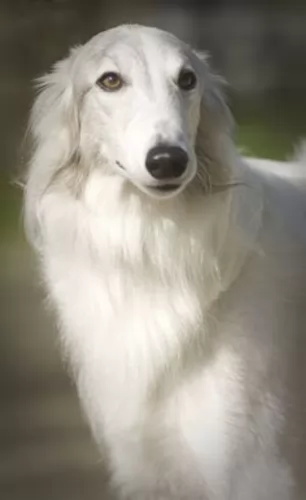 1. Children friendliness – they are great with children and would romp with them all day.
1. Children friendliness – they are great with children and would romp with them all day.
3.Adaptability Like most sighthounds they can be couch potatoes but being medium sized they can live just about anywhere as long as it is inside.
4.Learning ability - They are smart but their learning ability can be hampered by their stubbornness.
 Australian cattle dogs are healthy and can live up to 15 years of age, but even so there are some genetic conditions that you will need to be aware of following
Australian cattle dogs are healthy and can live up to 15 years of age, but even so there are some genetic conditions that you will need to be aware of following
Eye issues which includes progressive retinal atrophy – this disease is an inherited disease of the retina of the eye where the rod cells are destined to die. Fortunately it is not painful for the dog. There are different types of inherited retinal degenerative diseases in dogs but going into detail with them is beyond the scope of this article. For more information you can chat to your vet.
Recessive piebald elleles - the Blue Heeler has recessive piebald alleles which can produce white in the skin and coat and which is linked to congenital hereditary deafness.
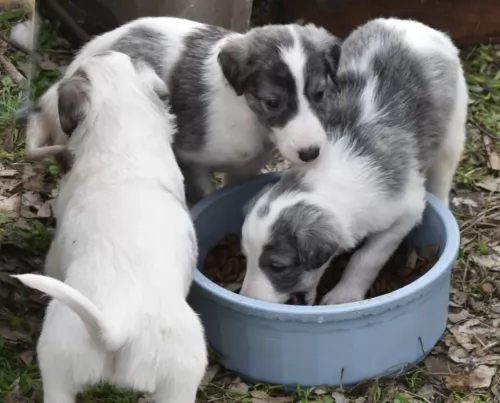 Most inherited diseases and conditions are rare. There is some drug related sensitivity, especially to ivermectin, and some dogs carry a MDR1 (multi-drug resistance gene) that is defective. Breeders are attempting to breed this out of the Silkens. A few other rare instances of concern include:
Most inherited diseases and conditions are rare. There is some drug related sensitivity, especially to ivermectin, and some dogs carry a MDR1 (multi-drug resistance gene) that is defective. Breeders are attempting to breed this out of the Silkens. A few other rare instances of concern include:
 Remember that your Blue Heeler was once a full time cattle dog where he used to become totally and utterly exhausted from herding cattle. This is what he loved – the activity. If you have a Blue Heeler, you will need to provide him with plenty of exercise.
Remember that your Blue Heeler was once a full time cattle dog where he used to become totally and utterly exhausted from herding cattle. This is what he loved – the activity. If you have a Blue Heeler, you will need to provide him with plenty of exercise.
If you live on a farm, your Blue Heeler will be in his element because he can run, walk and swim to his heart’s content. If you keep your Blue Heeler in your back garden, you will need to provide him with ball games, rope games, long walks, running on a leash as you cycle and other activities.
Your Blue Heeler has a short, weather-resistant double coat. He’s not a heavy shedder, but he will have his share of seasonal shedding, so it’s a good idea to get into the habit of brushing him at least twice a week. This will get rid of all those loose hairs and keep his skin healthy by getting the blood flowing and distributing his natural oils.
Giving the best dog food for your Blue Heeler will come from either your home made food or a top quality commercially manufactured dog food. He is such a high energy dog, that your veterinarian can advise you on a dog food specially designed for high energy breeds.
These foods are well balanced and are enriched with amino acids and vitamins, promoting healthy bones and joints. Remember to include some raw meat into your dog’s diet and to ensure a constant source of cool, fresh water.
Ensure your Blue Heeler’s ongoing health by paying attention to ears, nails and teeth.
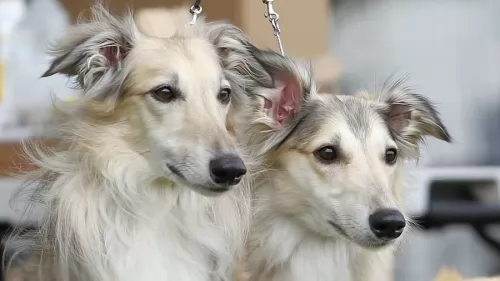 1.Feeding the puppy This is a medium sized, active breed. They need high quality dog food with plenty of protein. Feed them 3 times a day from a food made for high energy active medium sized breeds.
1.Feeding the puppy This is a medium sized, active breed. They need high quality dog food with plenty of protein. Feed them 3 times a day from a food made for high energy active medium sized breeds.
2.Feeding the adult - Feed them 2 times a day from a food made for high energy active medium sized breeds.
4. Games and Exercises The breed is active, and they love to run. They need daily exercise and they usually excel at flyball, agility, obedience and therapy. Obviously, they are very good at lure coursing and racing. They love to run or jog with you.